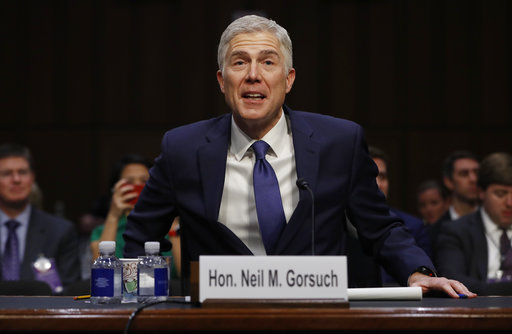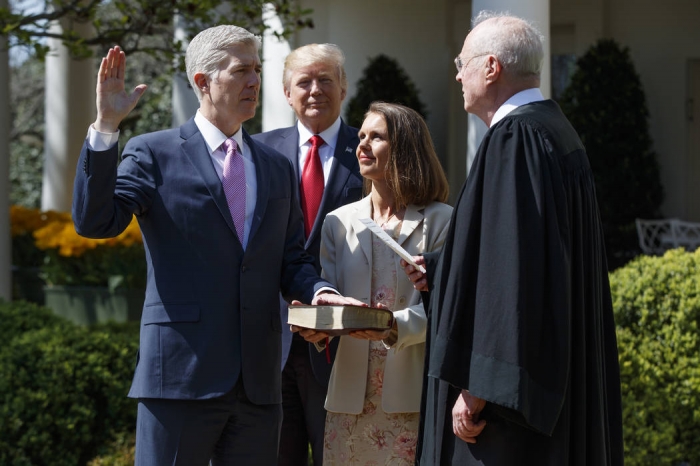Neil Gorsuch (1967 – ) is an associate justice of the U.S. Supreme Court, who previously served as a judge on the 10th U.S. Circuit Court of Appeals. He was appointed by President Donald J. Trump in 2017.
Gorsuch has shown sensitivity toward various First Amendment issues
While his record on the First Amendment on the High Court has yet to be determined, Gorsuch showed a significant degree of sensitivity and knowledge of various First Amendment issues while serving on the court of appeals. First Amendment expert Ronald K.L. Collins explains: “If one scans what we now know of the arc of Judge Gorsuch’s views on the First Amendment and free expression, it is readily apparent than he has a long and informed commitment to the First Amendment.”
Born in Denver, Colorado, Gorsuch earned his undergraduate degree from Columbia University and his law degree from Harvard, where he graduated cum laude. During his undergraduate days, Gorsuch wrote for the school newspaper. During law school, he served as an editor of the Harvard Journal of Law & Public Policy.
After his law school graduation, Gorsuch clerked for Judge David B. Sentelle on the U.S. Court of Appeals for the D.C. Circuit and then for U.S. Supreme Court Justices Byron White and Anthony Kennedy. Gorsuch then worked for a litigation firm in Washington D.C. for seven years.
Gorsuch next worked in the U.S. Department of Justice as principal deputy to Associate Attorney General Robert McCallum in 2005 and 2006. In 2006, President George W. Bush appointed Gorsuch to the 10th U.S. Circuit Court of Appeals.

Supreme Court Justice nominee Neil Gorsuch arrives on Capitol Hill in 2017, for his confirmation hearing before the Senate Judiciary Committee. During this time on the 10th Circuit Court of Appeals, Gorsuch penned many First Amendment opinions. Gorsuch is known for his sharp and effective writing style and ability to explain complex legal doctrine in readable plain English. (AP Photo/Pablo Martinez Monsivais, used with permission from the Associated Press)
Gorsuch penned many First Amendment opinions during his time on the court of appeals
During this time on the bench, Gorsuch penned many First Amendment opinions. He ruled that prison officials may have violated the religious liberty rights of an inmate when they denied him access to a sweat lodge in Yellowbear v. Lampert (10th Cir. 2014). He showed impressive knowledge of defamation law in rejecting a lawsuit by a prison inmate who claimed he was falsely smeared by a television program in Bustos v. A & E Television Network (10th Cir. 2011). He also showed excellent command of public employee free-speech jurisprudence by identifying the impact of Garcetti v Ceballos (2006) in his opinion Casey v. West Las Vegas Indep. Sch. Dist. (10th Cir. 2007).
Gorsuch is known for his sharp and effective writing style and ability to explain complex legal doctrine in readable plain English.
David L. Hudson, Jr. is a law professor at Belmont who publishes widely on First Amendment topics. He is the author of a 12-lecture audio course on the First Amendment entitled Freedom of Speech: Understanding the First Amendment (Now You Know Media, 2018). He also is the author of many First Amendment books, including The First Amendment: Freedom of Speech (Thomson Reuters, 2012) and Freedom of Speech: Documents Decoded (ABC-CLIO, 2017). This article was originally published in 2017.

